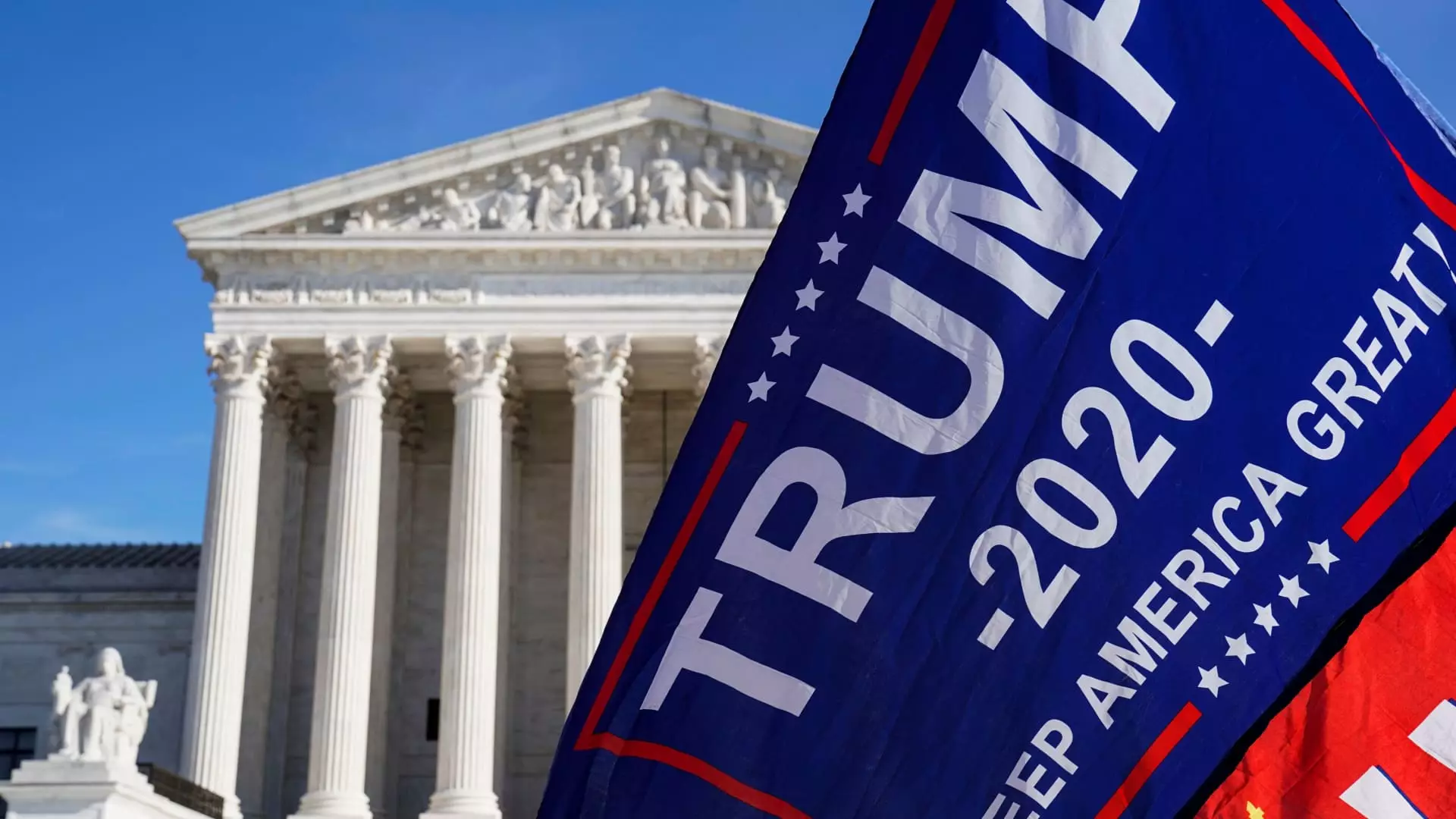The Supreme Court is currently deliberating on whether former President Donald Trump should be immune from federal prosecution for criminal acts related to election interference. Justice Sonia Sotomayor expressed skepticism during the initial questioning of Trump’s lawyers, who argued that a president should be shielded from prosecution for any official actions taken while in office. Sotomayor raised serious concerns about the implications of such immunity, questioning the reasonableness of allowing a president to engage in criminal activities for personal gain.
The central issue at hand is whether an ex-president can face prosecution for official acts committed during their tenure in office. This question holds significant weight in special counsel Jack Smith’s case, which accuses Trump of unlawfully attempting to overturn the results of the 2020 election against President Joe Biden. The Supreme Court’s ultimate ruling on this matter will not only impact Smith’s case but also have far-reaching implications for other criminal charges against Trump that are tied to his actions as president.
While Trump’s defense team has argued that criminal prosecution could “chill” a president’s decision-making process, Justice Ketanji Brown Jackson raised a critical counterargument. She emphasized the importance of ensuring that the president is not above the law and that there must be consequences for illegal activities committed while in office. Jackson expressed concerns about the potential for the Oval Office to become a hub of criminal activity if there are no disincentives in place to prevent such behavior.
Apart from the election interference case being heard by the Supreme Court, Trump is facing legal troubles in other jurisdictions. In Manhattan Supreme Court, he is currently standing trial for allegedly falsifying business records by reimbursing his lawyer for a hush money payment to a porn star. Trump’s absence from the Supreme Court proceedings, as he was required to attend his New York trial, highlights the multi-faceted legal challenges he is confronting.
The Supreme Court’s decision to entertain Trump’s immunity claim has led to delays in the election interference trial and sparked criticism from legal experts. Despite lower courts rejecting Trump’s immunity argument, the Supreme Court’s involvement has prolonged the legal proceedings. This delay has been met with disapproval from critics, who argue that the court should have swiftly resolved the matter given the gravity of the charges against Trump.
The indictment brought by Jack Smith includes serious charges against Trump, such as conspiracy to defraud the United States. Smith asserts that Trump attempted to undermine the 2020 election results through disseminating false claims of election fraud, orchestrating fake pro-Trump electors in states won by Biden, and leveraging a violent mob of his supporters during the Capitol insurrection on January 6, 2021.
The Supreme Court’s decision on Trump’s immunity from prosecution will have far-reaching implications for the accountability of public officials and the rule of law. As the legal battles surrounding Trump continue to unfold, the outcome of this pivotal case will shape the future landscape of presidential accountability and the limits of executive authority.

Leave a Reply